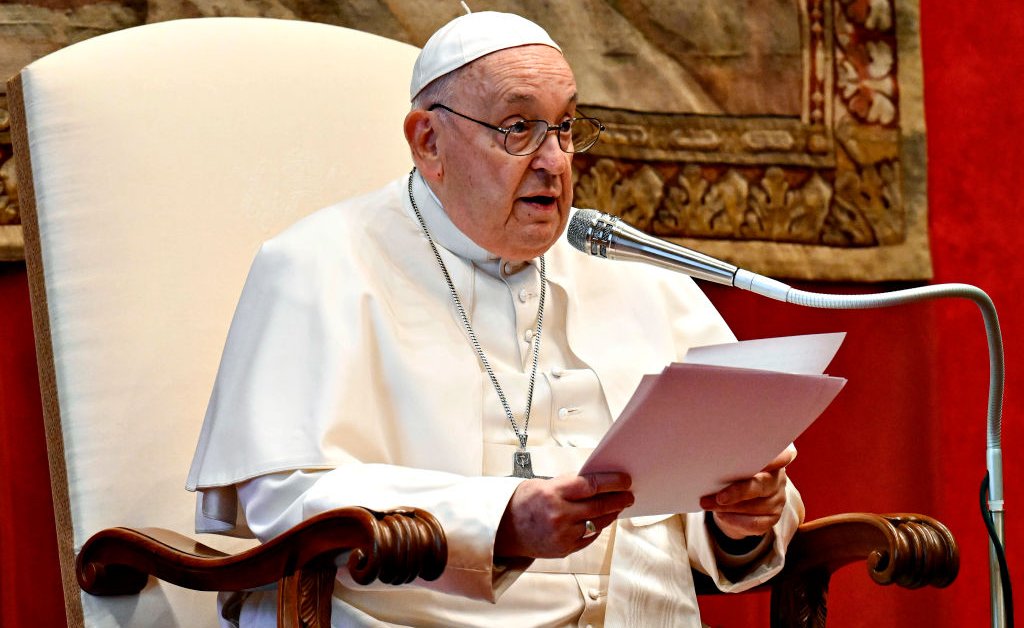Pope Francis has urged for a worldwide prohibition on what he labeled as the “unacceptable” act of parenting through surrogacy, a position that is expected to stir controversy within the LGBT community, many of whom have utilized this method to start families.
During his annual address to diplomatic representatives at the Holy See, the Pope highlighted “surrogate motherhood” as one of the challenges to global peace and human dignity, alongside issues like the conflicts in Ukraine and Gaza, climate change, and migration struggles.
Expressing his disapproval, the Pope stated, “I consider the practice of so-called surrogate motherhood deplorable, as it constitutes a serious violation of women’s and children’s dignity, exploiting vulnerable maternal circumstances.” He emphasized that a child should always be viewed as a gift, not a commodity for contractual agreements.
Emphasizing the sanctity of unborn life, Francis asserted that children should not be treated as objects for trafficking and called for a collective effort by the international community to universally outlaw this practice.
This is not the first instance where Pope Francis has articulated the Catholic Church’s stance against surrogacy. However, the Vatican’s doctrinal office had previously indicated that children born through surrogacy for homosexual couples could receive baptism under the condition that there is a prospect of Catholic upbringing.
In the same address, the Pope reiterated his opposition to “gender theory,” which challenges traditional male and female distinctions, labeling it as “highly perilous” for erasing inherent differences in the pursuit of equality.
While Francis has been commended for fostering a more inclusive Catholic Church, such as by permitting blessings for same-sex unions, he upholds conservative views on issues like abortion.
Statistics from the Centers for Disease Control and Prevention reveal a rising trend in embryo transfer cycles utilizing gestational carriers, peaking at 9,195 in 2019 before a slight decline in 2020 due to the COVID-19 pandemic.
Despite the increasing utilization of surrogates, ethical apprehensions regarding the commercialization of surrogacy have prompted countries like Spain, Italy, and Taiwan to enforce complete bans on the practice. Some nations only permit altruistic surrogacy, where women carry embryos without financial compensation. In the United States, regulations vary across states.
Critics of surrogacy have raised concerns about economic disparities, cautioning that financial vulnerability may lead women to prioritize the wishes of the affluent over their own bodily autonomy.

